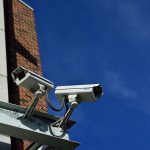Popular Aussie Holiday Destination to Monitor Your Every Move

Surfers Paradise, on the Gold Coast in Queensland, is one of the country’s most popular holiday destinations.
And to make sure it capitalises on every tourist dollar, the local council is about sign off on a multi-million dollar big-brother like digital tracking programme to monitor every move visitors make.
Big Brother in action
The technology will have the ability to track the use of credit cards and mobile phones. And the Gold Coast Council hopes that mining this data will provide enough information ‘to boost Gold Coast tourism by up to $3 billion’.
The technology rollout is part of an Events, Economy and Insights Project which will produce “five different data sets” – predominantly telco data but also data from the major banks and credit card companies which will provide anonymised spend patterns.
The first phase of the project will use the following:
- location insights — the large telecommunications carriers which offer mobility data.
- Wi-fi usage — the city’s SURF network has about 8000 unique users a day.
- expenditure patterns — accommodation, food, beverage and retail on credit cards.
- transport and travel — flights, public transport and Uber use.
- city’s sensor network — use of Internet of Things (IoT) devices in parks, beaches and other city assets.
While the local council says the new digital tools will pinpoint weaknesses in the market and help it to invest wisely for maximum return, there are major concerns about the implementation of the technology, in particular the lack of detail around it’s rollout, specific information around how the data will be used, and what individual privacy protections are in place.
While both the technology and the strategy may seem innocuous enough right now, there’s always the concern that in different hands – under a different government, for example – the technology could be used for other, much more sinister purposes. And by then it will already be in use.
Big Brother is watching
For some time, Australia has been accused of moving more and more towards a totalitarian state with ubiquitous monitoring of people’s daily lives.
‘Big brother’ technology is everywhere – we’re filmed and photographed as we walk the streets, as we use public transport and as we enter public and private buildings. New laws even require internet service providers to store our web browsing history (metadata) for two years and disclose it to a range of government agencies, without them even having to obtain a warrant. And it seems intrusions on privacy are only going to get worse. Facial recognition technology is about to be deployed in the federal government’s new national database which will enable real-time biometric face-matching at a range of locations.
As with most intrusions into our privacy, the government claims the move is vital in the fight against terrorism.
In the case of the Gold Coast, the local council purports that deployment of this new spying technology will provide a positive boost to the economy.
All eyes on you
Last year, Westfield Shopping Centres came under fire for using sophisticated facial recognition software, working in conjunction with mobile phones, to track the movements, and purchases as well as monitor the ‘moods’ of shoppers.
The shopping giant, not unlike the Gold Coast Council, justified the use of the technology as a ‘way of collecting information to enhance shoppers’ experiences, which is another way of saying politely ‘to make shoppers spend more’.
However, Westfield was not forced to disclose how the information it collected was used, and while it faced a great deal of backlash for not adequately informing shopping centre patrons when the technology was in use, it did not break the law. Which only serves to highlight the jaw-dropping inadequacy of privacy laws in Australia.
Inadequacy of privacy laws
Although some federal statutory privacy protections already exist in various forms, including the Privacy Act 1988, these have been consistently criticized as being too limited because we no longer live in a time where individuals, or even corporations, are able to exert effective control over their own privacy. From the non-consensual sharing of images to involuntary data sharing, as well as extensive public surveillance.
But debates about the relevance of the current Privacy Act are not new either, but until it is reviewed, and updated for the 21st Century, individuals have limited means by which to address invasions of privacy and this is a major concern, particularly as more and more George Orwell’s predictions from the novel 1984 are becoming a reality.







